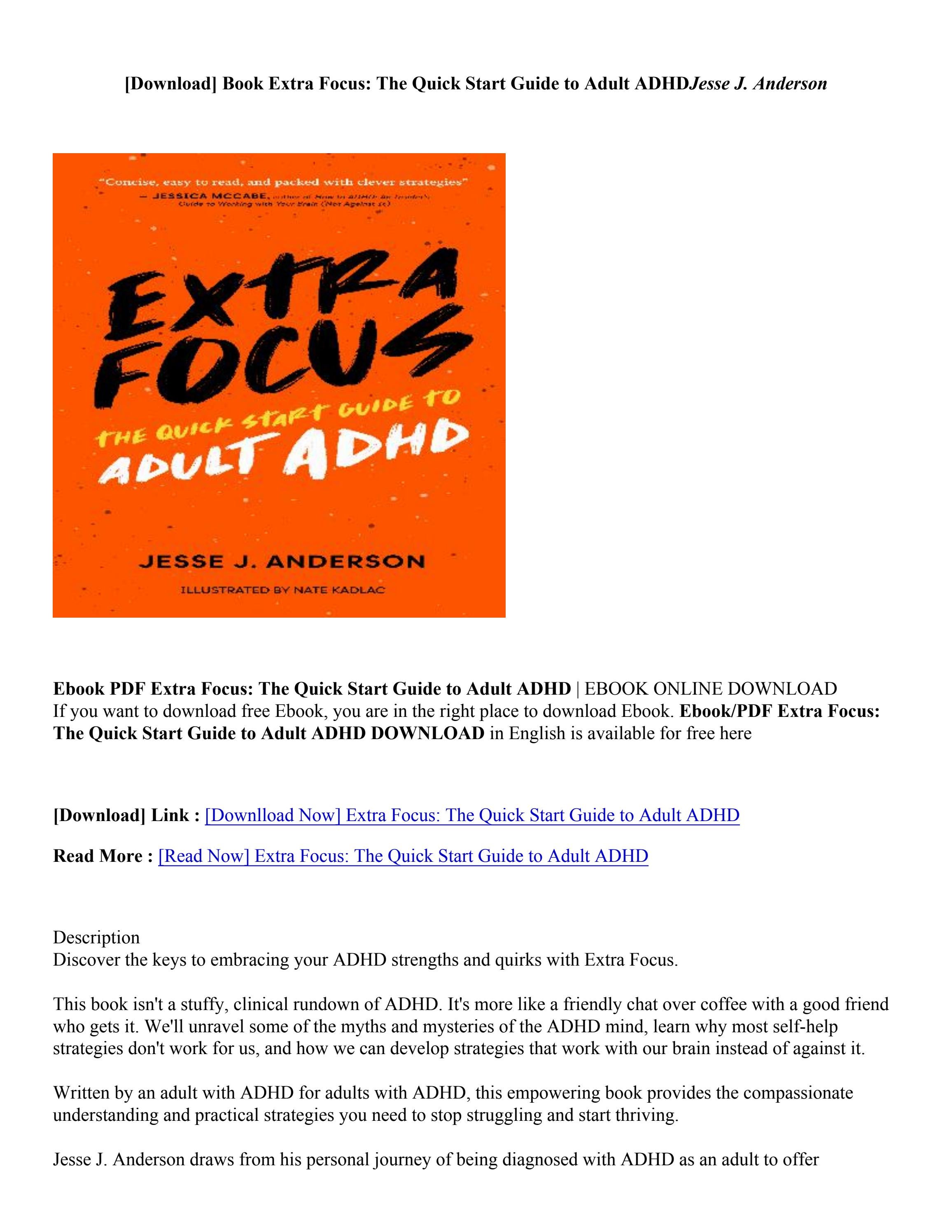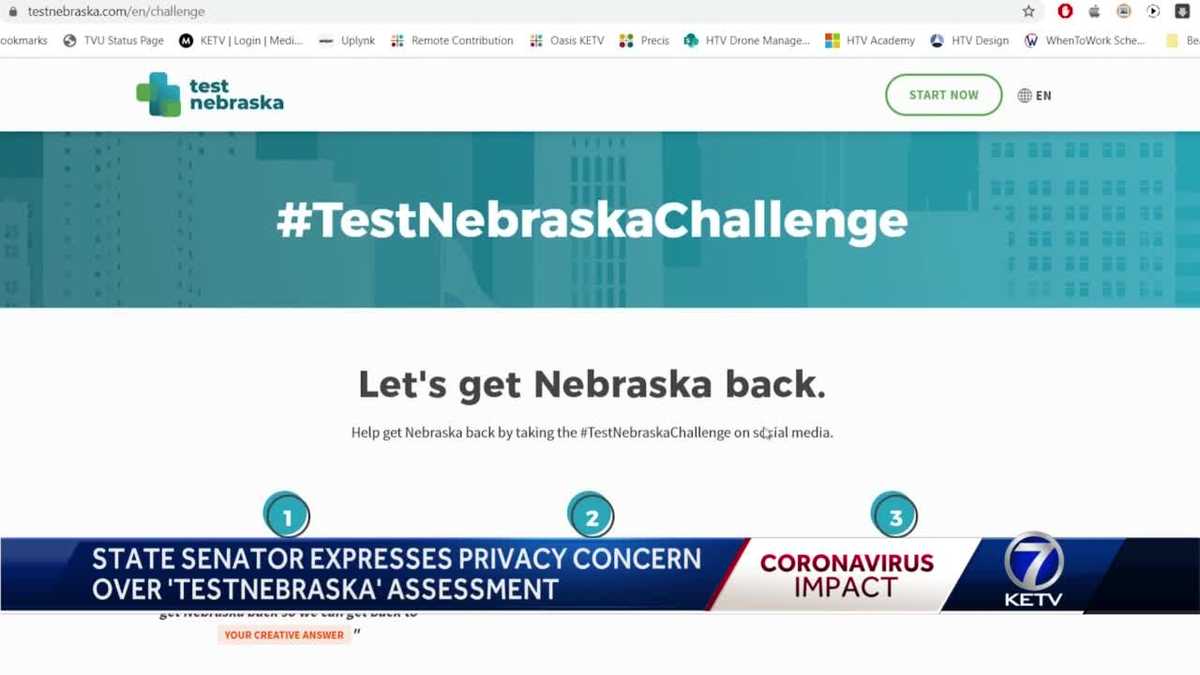Suspect Adult ADHD? Your Guide To Next Steps

Table of Contents
Recognizing the Signs of Adult ADHD
Adult ADHD, or adult attention deficit hyperactivity disorder, presents differently than in children. Recognizing the subtle yet impactful symptoms is the first step towards seeking help.
Common Symptoms in Adults
While symptoms vary, common indicators of Adult ADHD include:
- Difficulty focusing and sustaining attention: Struggling to concentrate on tasks, easily distracted by external stimuli, and experiencing mind wandering are common signs. This can manifest in difficulty completing work projects, reading lengthy documents, or following conversations.
- Problems with organization and time management: Procrastination, missed deadlines, disorganization, and difficulty prioritizing tasks are frequent challenges. This can lead to significant stress and impact professional and personal life.
- Impulsivity and restlessness: Acting without thinking, interrupting others frequently, making hasty decisions, and experiencing a constant need to be on the move are key indicators.
- Forgetfulness and difficulty remembering appointments: Misplacing items, forgetting important dates, and struggling to recall conversations are common occurrences. This can lead to frustration and strained relationships.
- Emotional dysregulation and mood swings: Experiencing intense emotional reactions, difficulty managing emotions, and frequent mood swings can be linked to Adult ADHD.
- Challenges with relationships and maintaining commitments: Difficulties in maintaining relationships due to impulsivity, forgetfulness, or difficulty prioritizing commitments are common.
- Low self-esteem and feelings of inadequacy: The constant struggle with ADHD symptoms can lead to feelings of inadequacy, frustration, and low self-esteem.
Differentiating ADHD from other Conditions
It's crucial to understand that many conditions share similar symptoms with Adult ADHD. Anxiety disorders, depression, and learning disabilities can exhibit overlapping characteristics. A comprehensive assessment by a qualified professional is essential to differentiate between these conditions and arrive at an accurate diagnosis. This ensures you receive the appropriate and targeted treatment.
Self-Assessment Tools
Several online self-assessment questionnaires can provide a preliminary indication of the likelihood of ADHD. These tools, while helpful, should not replace a professional diagnosis. Remember, they offer a starting point for reflection, not a definitive conclusion. [Link to reputable self-assessment tool 1] [Link to reputable self-assessment tool 2]
Seeking Professional Help for Adult ADHD
Once you suspect you might have Adult ADHD, seeking professional help is vital for accurate diagnosis and treatment.
Finding the Right Healthcare Professional
Finding a healthcare professional specializing in ADHD is crucial for effective diagnosis and management. Consider consulting a psychiatrist, psychologist, or neuropsychologist with expertise in Adult ADHD. You can find specialists by:
- Searching online directories of mental health professionals.
- Asking your primary care physician for referrals.
- Checking with local ADHD support groups for recommendations.
The Diagnostic Process
The diagnostic process typically involves a thorough evaluation, including:
- Detailed interviews: Discussions to understand your symptoms, history, and challenges.
- Questionnaires: Standardized assessments to evaluate ADHD-related symptoms.
- Neuropsychological testing (in some cases): Tests to assess cognitive functions and rule out other conditions.
Preparing for Your Appointment
Before your appointment, prepare a detailed list of:
- Your symptoms, including specific examples and their frequency.
- Challenges you face in daily life due to these symptoms.
- Relevant personal history, including family history of ADHD.
Treatment Options for Adult ADHD
Treatment for Adult ADHD typically involves a combination of approaches tailored to individual needs.
Medication Management
Stimulant and non-stimulant medications are commonly used to manage ADHD symptoms. Stimulants such as methylphenidate and amphetamine are often effective in improving focus and reducing impulsivity. Non-stimulants, such as atomoxetine, provide an alternative for individuals who don't respond well to stimulants or experience significant side effects. Medication is often most effective when used in conjunction with therapy.
Psychotherapy and Behavioral Therapy
Cognitive Behavioral Therapy (CBT) is a highly effective therapy for Adult ADHD. CBT helps individuals identify and change negative thought patterns and behaviors that contribute to ADHD-related challenges. Other therapies, such as behavioral therapy, may also be beneficial in developing coping strategies and improving self-management skills.
Lifestyle Changes
Making lifestyle adjustments can significantly support ADHD management:
- Regular exercise: Physical activity can improve focus, reduce impulsivity, and enhance mood.
- Healthy diet: A balanced diet can optimize brain function and reduce mood swings.
- Sufficient sleep: Adequate sleep is crucial for cognitive function and emotional regulation.
Coping Strategies and Support
Managing Adult ADHD effectively requires a multi-faceted approach that incorporates coping strategies and support.
Building a Support Network
Connecting with others who understand your experiences is invaluable. Support groups, family, friends, and online communities can provide encouragement, shared experiences, and practical advice. [Link to relevant support group 1] [Link to relevant support group 2]
Stress Management Techniques
Stress can exacerbate ADHD symptoms. Practicing stress management techniques such as mindfulness, meditation, and yoga can improve emotional regulation and reduce overwhelm.
Time Management and Organizational Strategies
Implementing practical strategies for time management and organization is essential. This could involve using planners, breaking down tasks into smaller steps, setting reminders, and utilizing organizational apps.
Conclusion
Suspecting you have Adult ADHD can be a significant step. This guide provides a roadmap for navigating the process of diagnosis and treatment. Remember, seeking professional help is crucial for accurate diagnosis and personalized treatment plans tailored to your needs. Don't hesitate to take the next step towards understanding and managing your symptoms. If you suspect you have Adult ADHD, schedule a consultation with a qualified healthcare professional today. Take control of your life and explore the possibilities of living with effective Adult ADHD management.

Featured Posts
-
 Concerns Rise Over Willie Nelsons Health Due To Extensive Touring
Apr 29, 2025
Concerns Rise Over Willie Nelsons Health Due To Extensive Touring
Apr 29, 2025 -
 2025 Nfl Season Will Justin Herbert Lead The Chargers In Brazil
Apr 29, 2025
2025 Nfl Season Will Justin Herbert Lead The Chargers In Brazil
Apr 29, 2025 -
 Khazna Data Centers Saudi Arabia Expansion Plans Following Silver Lake Investment
Apr 29, 2025
Khazna Data Centers Saudi Arabia Expansion Plans Following Silver Lake Investment
Apr 29, 2025 -
 Where To Invest Identifying The Countrys Top Business Locations
Apr 29, 2025
Where To Invest Identifying The Countrys Top Business Locations
Apr 29, 2025 -
 Capital Summertime Ball 2025 Ticket Information And Purchase Options
Apr 29, 2025
Capital Summertime Ball 2025 Ticket Information And Purchase Options
Apr 29, 2025
Latest Posts
-
 Anomalnoe Teplo Privelo K Zakrytiyu Gorok V Chelyabinske
Apr 30, 2025
Anomalnoe Teplo Privelo K Zakrytiyu Gorok V Chelyabinske
Apr 30, 2025 -
 Nebraska Senators Express Concerns Over Proposed Gretna Development
Apr 30, 2025
Nebraska Senators Express Concerns Over Proposed Gretna Development
Apr 30, 2025 -
 Iz Za Tepla V Chelyabinske Zakryty Vse Gorki
Apr 30, 2025
Iz Za Tepla V Chelyabinske Zakryty Vse Gorki
Apr 30, 2025 -
 Biker Hospitalized After Serious Accident Involving A Lorry
Apr 30, 2025
Biker Hospitalized After Serious Accident Involving A Lorry
Apr 30, 2025 -
 Doubt Cast On Gretna Mega Development By Nebraska Lawmakers
Apr 30, 2025
Doubt Cast On Gretna Mega Development By Nebraska Lawmakers
Apr 30, 2025
